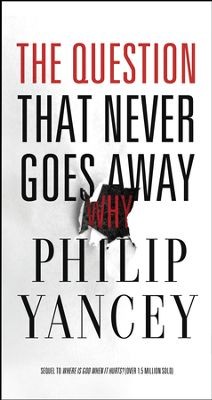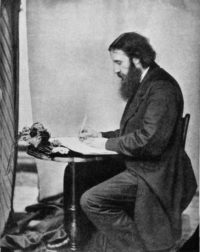The Question That Never Goes Away
 I’ve never read Philip Yancey’s book Where Is God When It Hurts? But since its publication, Yancey has had many opportunities to revisit the topic. This book addresses that question again in light of three specific tragedies: war in Sarajevo; the tsunami in Japan; and the school shootings in Newtown, Connecticut.
I’ve never read Philip Yancey’s book Where Is God When It Hurts? But since its publication, Yancey has had many opportunities to revisit the topic. This book addresses that question again in light of three specific tragedies: war in Sarajevo; the tsunami in Japan; and the school shootings in Newtown, Connecticut.
Yancey visited all three places after disaster struck, invited by people struggling to make sense of a good God in the midst of carnage. And even after years of being considered the expert on the subject, this author still addresses the mystery of God’s refusal to prevent such tragedies without giving any pat answers.
This book is a concise exploration of the questions that arise after great tragedy, and it supplies not only details about each incident described, but honest, probing insights into the ways faith can grow even when shaken by the most horrific expressions of natural and human fallenness.
It was a good book to be reading this week, when we had to say goodbye to a beloved family dog suffering from cancer. While my personal struggles seem small-scale when compared to the kinds of events related in this book, the questions are the same. Why? And why does God seem so silent in response to pain?
One of Yancey’s points is that while God doesn’t always protect us from pain, he will walk through it with us and redeem it. I held on to this hope this week as we took our dog to the vet despite many prayers for God to take her naturally and without suffering. Prior to that sad day, I had sensed God saying, “You do it.” I heard it as a stern command, the equivalent of, “Grow up.”
But having lived through the day and experienced many touches of grace and compassion, my hearing has been sharpened by the conviction that he was indeed walking through it with us. Rather than a punishment or a tough love “learning experience,” I’ve come to see it as a gift from God, a privilege, to have been able to release Katie from her pain. It wasn’t a brusque, uncaring “You do it” that I heard. It was a conferral of authority, a recognition of our years of loving and caring for Katie — even, perhaps, a comfort to be given the power to bring rest to her in a far gentler way than what loomed otherwise. It redeemed some small piece of our fallenness, restoring us to active participation in God’s loving stewardship over his creatures. We came through the experience with an assurance that it was the right choice, despite the sorrow.
What made the difference was faith. It changed the way I experienced a heartbreaking day, and opened my eyes to many details I may not have noticed if I had held on to doubt about God’s good intentions toward us. I’m grateful for The Question That Never Goes Away, a book with much to offer in the way of rich insight, and the right book at the right time for me. It helped to temper the severity my natural ears often attribute to God, and preserved the softness of heart I needed in order to receive his consolation.



3 Comments
Alice@Supratentorial
This is going on my list. It’s something I’ve really struggled with this year. Thanks for the review.
Barbara H.
I was thinking as I read the first few paragraphs that, like Yancey, as often as I have pondered those questions and found good answers, in a way they still don’t satisfy and the questions persist, and we just have to take it by faith – then I saw that you came to the same conclusion. :-)
This coming week is a rough one for my family as my mother passed away 12/10 and my father 12/12 (in different years). My parents were not believers until later in life. Some of my brothers and sisters are not yet, and though we all sorrow, theirs is so different. My heart goes out to them and I pray God may open their eyes to His peace and comfort.
In a different vein, I’ve become aware that my tendency, when my children might face anything hard, is to pray that it will be removed and the way would be made smooth for them, when in reality God has something to teach them through it. So I am trying to pray that He would teach them what He has for them and strengthen them for it and that they’ll see God in it. I’m acutely aware that trials can go either way, in softening a person and drawing them closer to God or in hardening them and causing bitterness and anger against Him. He is ever so much more aware of those possibilities, and I marvel that He risks being misunderstood and having people angry at Him. But evidently the ultimate purposes are worth it.
Jessica Snell
Oh, wow. What a story – I’ve rarely read a book review that connected the book’s theme to the reviewer’s real life so powerfully!